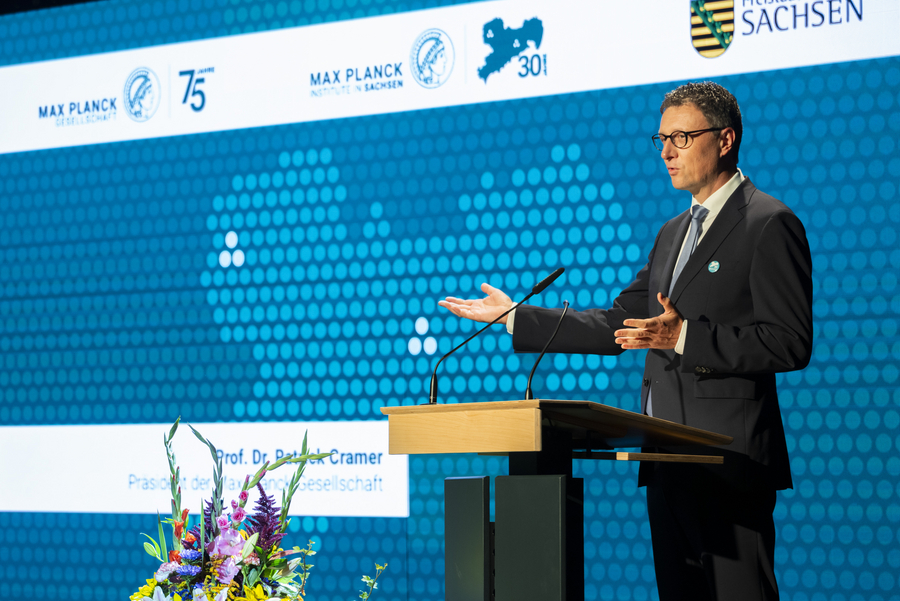
During his keynote speech on September 4th, Patrick Cramer emphasised the role of free science, an open society, and international cooperation. © Sven Döring
The first Max Planck Institute in Saxony was founded in 1993, the Max Planck Institute for the Physics of Complex Systems in Dresden. In the subsequent years, five more institutes followed: in 1994 (Max Planck Institute for Human Cognitive and Brain Sciences in Leipzig, initially as the Max Planck Institute for NeuroPsychological Research), in 1995 (Max Planck Institute for Chemical Physics of Solids in Dresden), in 1996 (Max Planck Institute for Mathematics in the Sciences in Leipzig), in 1997 (Max Planck Institute for Evolutionary Anthropology in Leipzig) and in 1998 (Max Planck Institute of Molecular Cell Biology and Genetics in Dresden).
This is an occasion to celebrate excellent research 'Made in Saxony' and to present it to the public. As part of the Max Planck Society's exhibition "Pioneers of Knowledge" - Nobel Laureates of the Max Planck Society, there will be several joint events of the institutes for the public in September 2023.
On September 4, 2023, Saxon Minister President Michael Kretschmer and Max Planck President Patrick Cramer co-hosted a ceremonial event at the Kulturpalast in Dresden, commemorating the 30-year success story of the Max Planck Society in Leipzig and Dresden. Nobel Laureate Svante Pääbo from the Max Planck Institute for Evolutionary Anthropology in Leipzig talked about his Neanderthal research.
Michael Kretschmer emphasized: “Since its reestablishment in 1990, Saxony has focused specifically on education and science. Smart ideas, international cooperation and research help ensure that our prosperity can grow. That's why I'm incredibly grateful for the outstanding scientific work being done at the institutes under the umbrella of the Max Planck Society here in Saxony. The institutes are among the most renowned research facilities in the world - and are enormously important drivers of innovation. With their work in the field of basic research, they help to strengthen Saxony as a research and science location overall.”
The President of the Max Planck Society, Patrick Cramer, said: “Saxony represents a science-friendly environment. A good education system, seed funds, flexibility. Thank you for all the support!”
Whole program for the 30th Anniversary of the Max Planck Institutes in Saxony.
Anniversary page 30 years of the Max Planck Society in Saxony